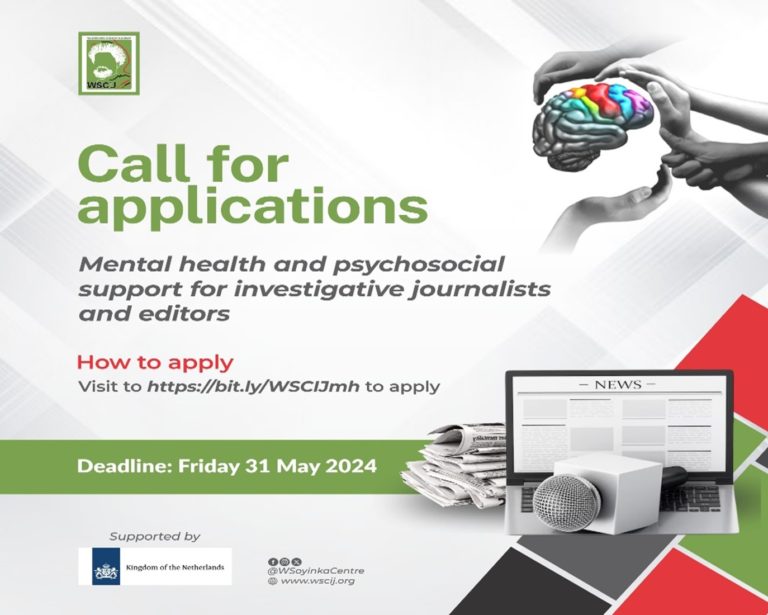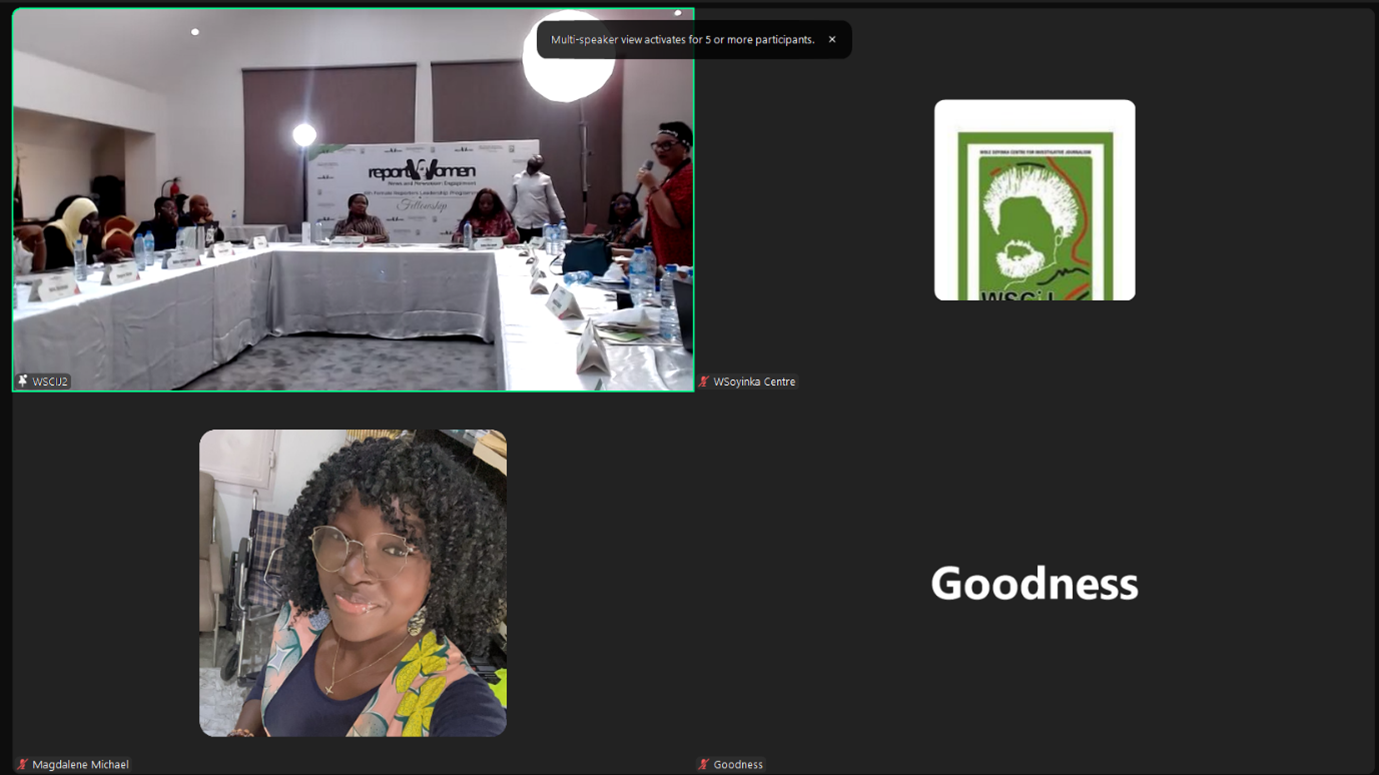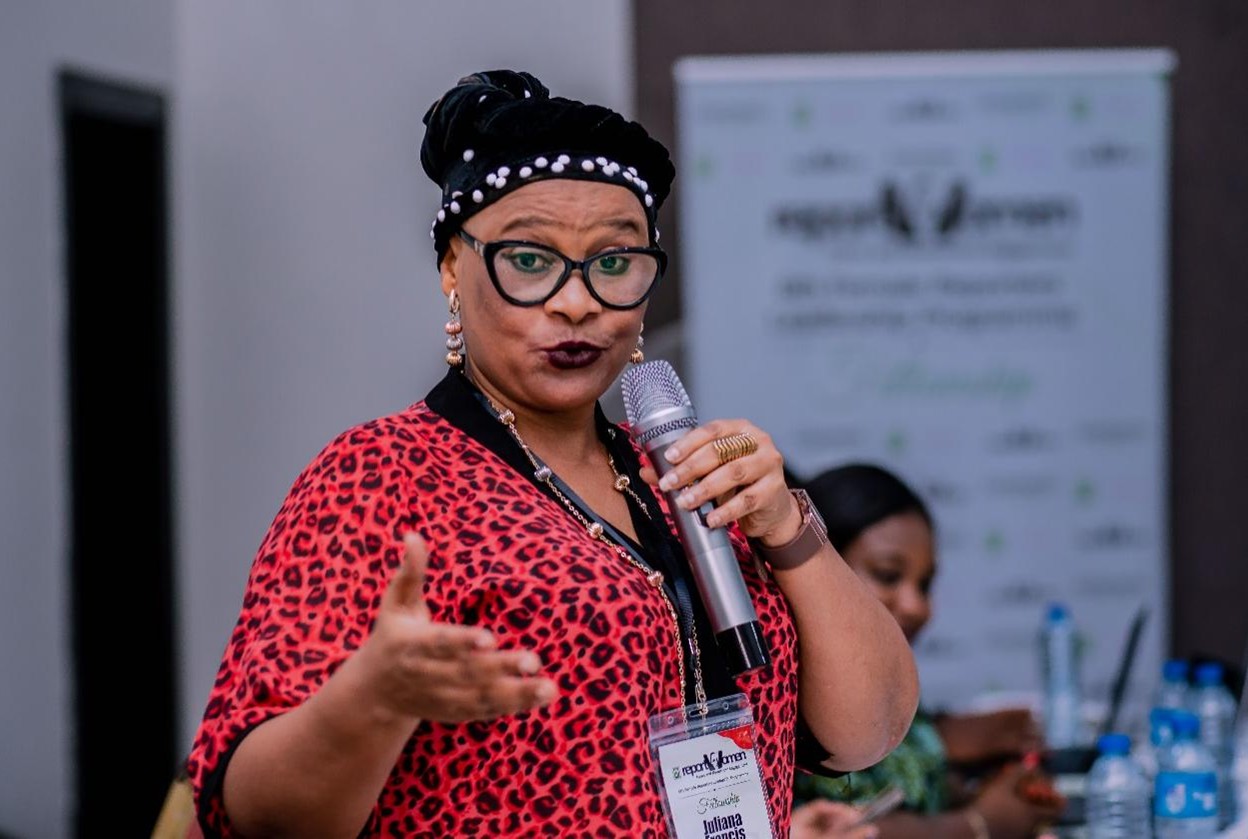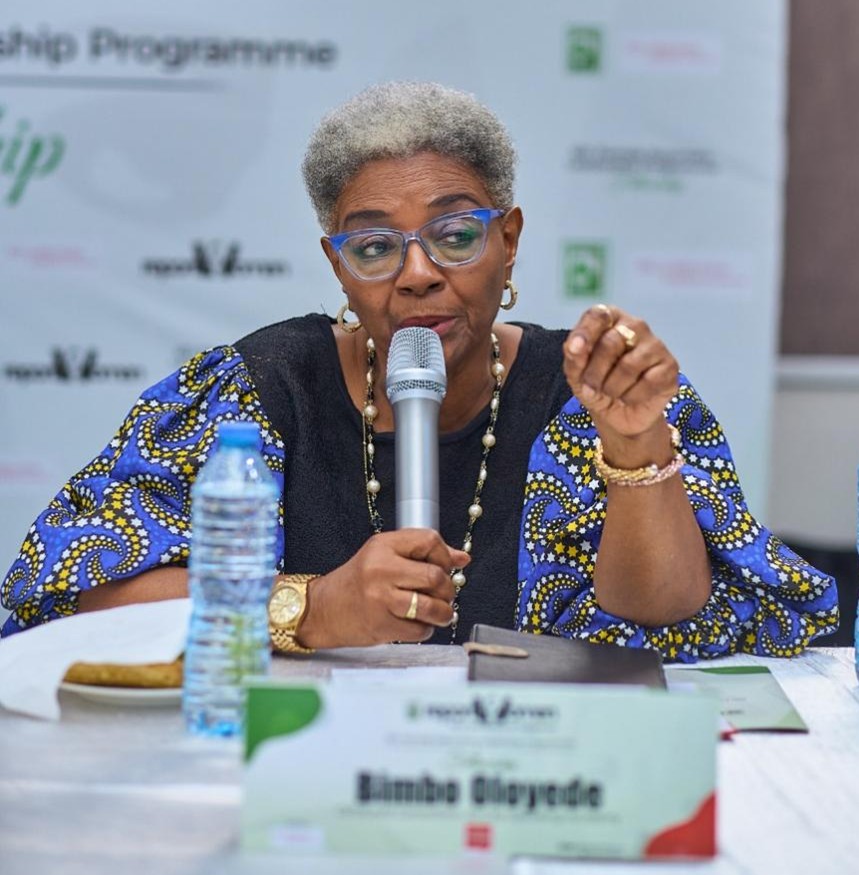The Wole Soyinka Centre for Investigative Journalism (WSCIJ) has announced the launch of mental health and psychosocial support for journalists as part of its Civic Space Guard project which is supported by the Embassy of the Netherlands in Nigeria. This initiative offers investigative journalists and editors free therapy and counselling services.
Olaoluwa Adeleye, Programme Officer, WSCIJ, made the announcement during the Mental Health Workshop themed “Beyond the byline: Prioritising journalists’ mental wellbeing for a resilient media” which was held virtually on Wednesday 15 May 2024.
Adeleye noted that investigative journalists encounter traumatising situations in the line of duty which may affect their health. He urged journalists to speak out and seek help despite the unpopularity of doing so given that their mental well-being is important for them to function better.
While making her contributions, Busola Ajibola, Deputy Director of Journalism, Centre for Journalism Innovation and Development, spoke about the prevalence of attacks on journalists. She cited 1,119 cases tracked cases between 1985 and 2013, with infringements primarily perpetrated by state actors. She emphasised the often-overlooked emotional and sexual harassment that journalists endure and the necessity of solidarity within the media community.
Haruna Mohammed, Co-Publisher, WikkiTimes, shared his experiences of harassment and arrest, detailing the toll on his mental health and family. He also shared how up-and-coming colleagues questioned why they should remain on a job as challenging as journalism because of his experiences.
On her part, Juliana Francis, Deputy Editor, The Eagle Online, highlighted the significant mental health challenges faced by journalists due to threats and attacks, stressing the importance of taking breaks. She flagged reliance on psychoactive drugs as a mental health warning sign. Sharing her experience, Kofoworola Bello-Osagie, Commissioning Editor, The Conversation Africa, underscored the importance of taking stock of one’s mental health.
Oluwakemi Shonubi, Director, People Culture Experience & Operations, TVC Communications, lauded her organisation for its supportive policies and advocated for the broader adoption of such practices in media organisations. The support includes counselling sessions, breaks other than annual leave, when required; constant sensitisation for staying healthy physically and mentally, and routine medical checks.
Speaking from the clinical point of view, Chinyereugo Onyekwere, Senior Clinical Psychologist at Neem Foundation, spoke about stressors and signs that journalists may be struggling with mental health issues. She encouraged attendees to take care of their mental health by building a strong support system, engaging in a healthy lifestyle, doing more activities outside of work, and above all, seeking the support of a psychologist when they notice some signs.








